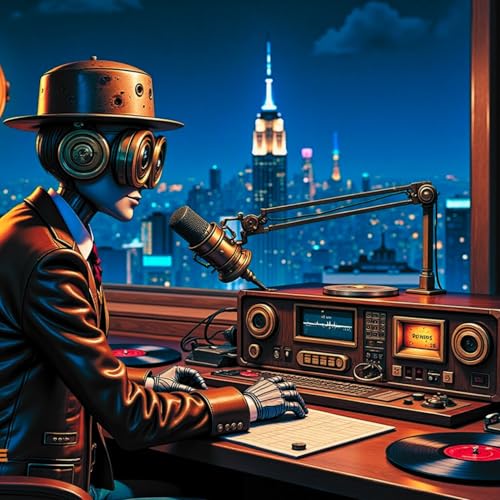⸻ Podcast: Redefining Society and Technologyhttps://redefiningsocietyandtechnologypodcast.com _____ Newsletter: Musing On Society And Technology https://www.linkedin.com/newsletters/musing-on-society-technology-7079849705156870144/_____ Watch on Youtube: https://youtu.be/nFn6CcXKMM0_____ My Website: https://www.marcociappelli.com_____________________________This Episode’s SponsorsBlackCloak provides concierge cybersecurity protection to corporate executives and high-net-worth individuals to protect against hacking, reputational loss, financial loss, and the impacts of a corporate data breach.BlackCloak: https://itspm.ag/itspbcweb_____________________________A Musing On Society & Technology Newsletter Written By Marco Ciappelli | Read by TAPE3We Have All the Information, So Why Do We Know Less?Introducing: Reflections from Our Hybrid Analog-Digital SocietyFor years on the Redefining Society and Technology Podcast, I've explored a central premise: we live in a hybrid analog-digital society where the line between physical and virtual has dissolved into something more complex, more nuanced, and infinitely more human than we often acknowledge.But with the explosion of generative AI, this hybrid reality isn't just a philosophical concept anymore—it's our lived experience. Every day, we navigate between analog intuition and digital efficiency, between human wisdom and machine intelligence, between the messy beauty of physical presence and the seductive convenience of virtual interaction.This newsletter series will explore the tensions, paradoxes, and possibilities of being fundamentally analog beings in an increasingly digital world. We're not just using technology; we're being reshaped by it while simultaneously reshaping it with our deeply human, analog sensibilities.Analog Minds in a Digital World: Part 1We Have All the Information, So Why Do We Know Less?I was thinking about my old set of encyclopedias the other day. You know, those heavy volumes that sat on shelves like silent guardians of knowledge, waiting for someone curious enough to crack them open. When I needed to write a school report on, say, the Roman Empire, I'd pull out Volume R and start reading.But here's the thing: I never just read about Rome.I'd get distracted by Romania, stumble across something about Renaissance art, flip backward to find out more about the Reformation. By the time I found what I was originally looking for, I'd accidentally learned about three other civilizations, two art movements, and the invention of the printing press. The journey was messy, inefficient, and absolutely essential.And if I was in a library... well then just imagine the possibilities.Today, I ask Google, Claude or ChatGPT about the Roman Empire, and in thirty seconds, I have a perfectly formatted, comprehensive overview that would have taken me hours to compile from those dusty volumes. It's accurate, complete, and utterly forgettable.We have access to more information than any generation in human history. Every fact, every study, every perspective is literally at our fingertips. Yet somehow, we seem to know less. Not in terms of data acquisition—we're phenomenal at that—but in terms of deep understanding, contextual knowledge, and what I call "accidental wisdom."The difference isn't just about efficiency. It's about the fundamental way our minds process and retain information. When you physically search through an encyclopedia, your brain creates what cognitive scientists call "elaborative encoding"—you remember not just the facts, but the context of finding them, the related information you encountered, the physical act of discovery itself.When AI gives us instant answers, we bypass this entire cognitive process. We get the conclusion without the journey, the destination without the map. It's like being teleported to Rome without seeing the countryside along the way—technically efficient, but something essential is lost in translation.This isn't nostalgia talking. I use AI daily for research, writing, and problem-solving. It's an incredible tool. But I've noticed something troubling: my tolerance for not knowing things immediately has disappeared. The patience required for deep learning—the kind that happens when you sit with confusion, follow tangents, make unexpected connections—is atrophying like an unused muscle.We're creating a generation of analog minds trying to function in a digital reality that prioritizes speed over depth, answers over questions, conclusions over curiosity. And in doing so, we might be outsourcing the very process that makes us wise.Ancient Greeks had a concept called "metis"—practical wisdom that comes from experience, pattern recognition, and intuitive understanding developed through continuous engagement with complexity. In Ancient Greek, metis (Μῆτις) means wisdom, skill, or craft, and it also describes a form of wily, cunning intelligence. It can refer to the pre-Olympian goddess of ...
続きを読む
一部表示

 10 分
10 分 36 分
36 分 14 分
14 分

